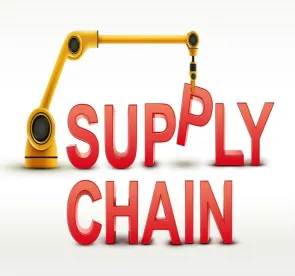On March 23, 2021, the container vessel Ever Given, one of the largest container ships in the world, grounded in the Suez Canal for nearly 5 days, blocking traffic through one of the busiest and most important commercial sea lanes in the entire world. The cost of this single incident is being measured in billions of dollars. Nearly 30 years ago, I made four transits of the Suez Canal as a young naval officer on the bridge of an aircraft carrier and even then, the importance of that narrow waterway to international commerce was apparent to me.
After a year of dealing with the continuing effects of the COVID-19 pandemic, it is undeniable that events happening in faraway places have immediate and potentially long-lasting impacts on the local economy. This impact is felt most keenly on our supply chains. To make matters worse, as the economy continues to recover from the pandemic, shortages of supplies are hampering manufacturing and service businesses across the international, national and local arenas.
How best can a business reduce interruption due to supply chain problems?
Below are a few areas that business owners can review to create a plan for a more resilient network of suppliers. These suggestions are not applicable to every business, but together these steps can create a more resilient network of supply relationships.
-
Understand your current needs and obligations. Identify items which, if their supply dropped materially, could severely impact your business. Can some of these items be kept stockpiled on hand? This is harder to accomplish for unique or custom items but can be accomplished for more readily available items. Every business with substantial vendor relationships should understand these relationships clearly.
-
Identify multiple sources for critical supplies. Having backup suppliers can keep your business going at an optimal pace. However, this option is not easily available to businesses with extensive contracts in place. Many businesses often like to obtain favorable prices by buying exclusively or in large quantities from a single source. These agreements make sense from a cost perspective, particularly when purchasing in large quantities or when a business has a predictable need for specific materials at designated times, but when relationships break down or performance becomes difficult (or impossible), the terms of these agreements become critical in determining who gets left holding the bag.
On the other hand, a large amount of business is also conducted on a purchase order basis without a formal agreement specifying exclusivity or minimal purchases. In that case, manufacturers are in a position to have non-exclusive relationships with multiple vendors. Even where there are agreements in place with suppliers, those agreements may not require exclusivity with the supplier. The downside of that situation occurs when supplies are low and suppliers are then able to dictate the distribution of scarce items to favored purchasers. The current automotive chip shortage is an illustration of this principle.
-
Create flexible relationships. As manufacturers try to rebound from the past year, they look to secure reliable sources for needed materials. Part of that challenge is that supply chains today are global in nature, which makes these relationships even more prone to impact by unexpected events. After taking stock of their supply contracts and understanding what requirements exist, businesses should map out an ideal supply chain network that maximizes its ability to obtain required materials and limit disruption. Some compromise might be required, but vendor relationships can be found which provide redundancy for the unexpected.
-
Seek professional solutions. A number of supply chain solutions have relied on recent advances in data analysis to help businesses maximize supply chain health and flexibility. These services are usually not cheap and often require subscription or access to business information that can make business owners nervous. However, they can create efficiencies and safeguards that can often pay for themselves in savings or as something of an insurance policy against supply chain disruption. Attorneys can also help sort out contractual obligations, including remedies (and defenses), to help businesses navigate their supply chains.
-
Be proactive. Finally, be proactive, which is easier said than done, of course. However, taking stock of potential alternative sources of critical items and mapping the network of suppliers and their capabilities can add a layer of preparedness for the next disruption. Contractual relationships that allow for needed flexibility can further add to a business’ ability to withstand the impact of unexpected events.




 />i
/>i
